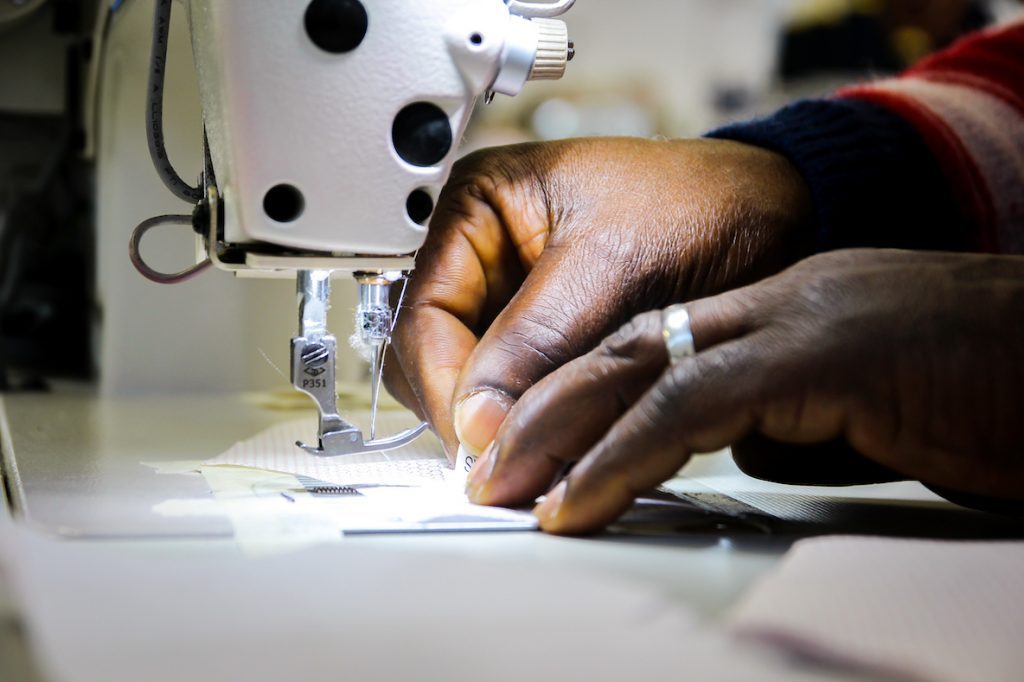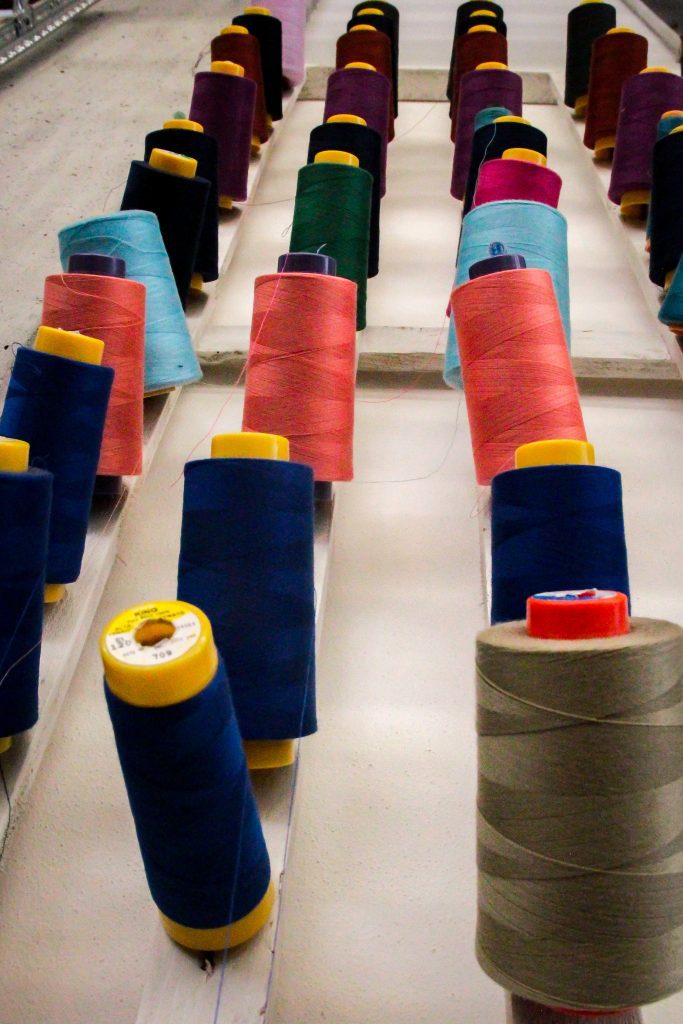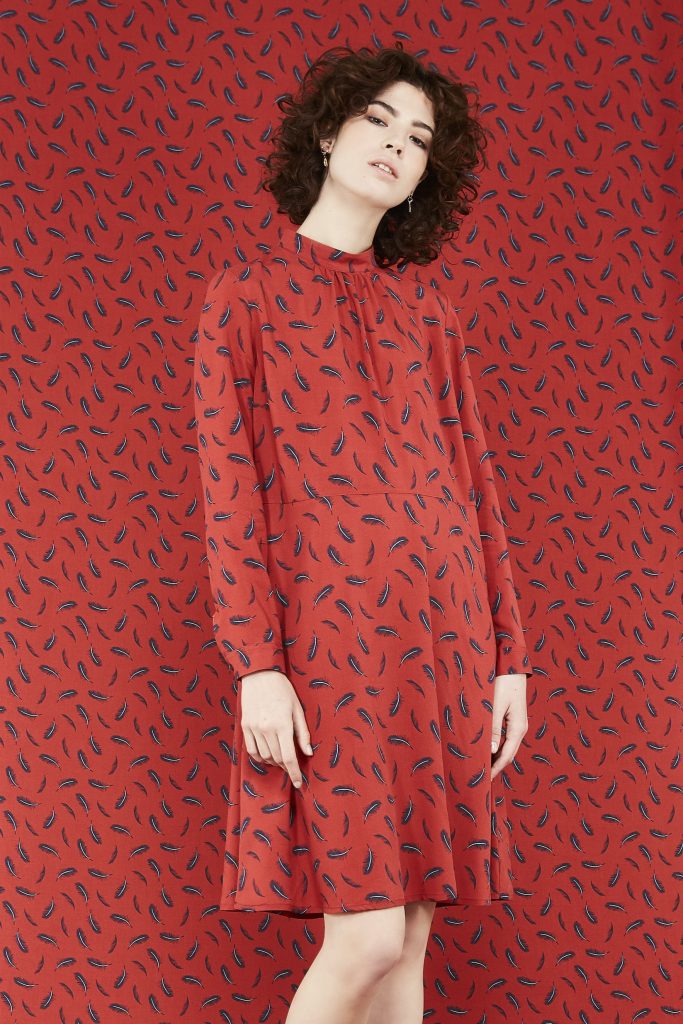When Elizabeth Tocca of Cora Happywear, my guest of the latest ‘Monthly Interview’, nominated Anna Fiscale of Progetto Quid for the February interview, I was happy because I’ve been following her and her project for a long time and I’ve been thinking I would have liked to have her sooner or later as a guest. I was satisfied!
I know the style and the clothes of Progetto Quid, I also have some in the wardrobe, I like them because they represent everything I think a dress must have to be considered ethical, therefore appealing aesthetics combined with quality and sustainable origin of the materials, attention to the rights of those made it and the environment. Now, thanks to this interview with Anna Fiscale, my knowledge of the brand has deepened and I know that I will wear the garments I purchased with even more pleasure and awareness.
So Anna, first of all, as I always ask my guests, I would like to know how you came to found Progetto Quid, what was the path. Go ahead, we like stories.
My personal experience led me to the belief that a new way of understanding entrepreneurship was needed, that it should have been sustainable from an economic, social and environmental point of view. I studied Economics and Management in Verona and then International Studies at Bocconi; thanks to this background and to my proximity to the world of volunteering, I was able to travel to countries such as India and Haiti, opening my eyes to realities that we perceive as distant but to which we are closely connected. On these occasions, abroad, I was able to experience the direct consequences of the unsustainable lifestyles that the western world continues to maintain. Working closely with the female world and daily looking for new empowerment spaces for the local girls, I realized that what I was doing was not enough.
Back in Verona I realized that it is not necessary to go very far to hear stories of abuses, violence, difficulties or exclusion, but that, looking carefully, we meet these stories every day: in the suburbs of the cities, in the lack of opportunities , in the difficulty of trusting a person only because he is different from us. So here we have decided to do something together with Ludovico, who is now the CEO of the cooperative, and other fellow students and friends. So in 2013 Quid was born, gradually growing to become the cooperative that is today, with the aim of including people with a history of fragility through its ethical and sustainable fashion brand, Progetto Quid.
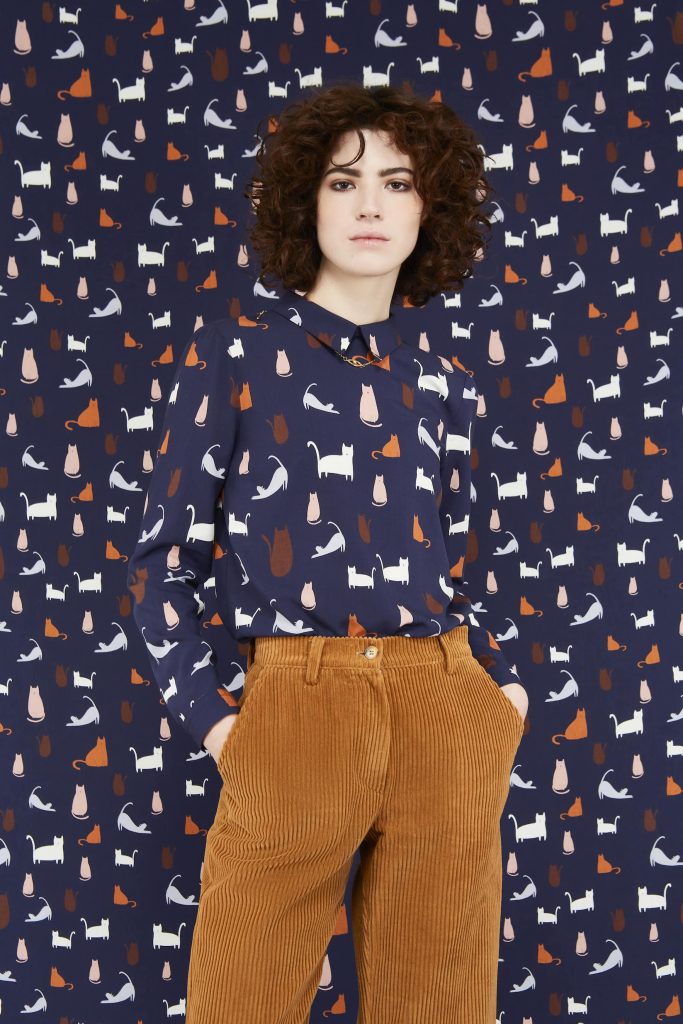
What were the initial difficulties, if any, of starting up the business? And how did you start hiring employees? Are the hiring channels still the same or have they changed over time?
Starting a company is always a delicate moment: for Quid it was essential to be able to communicate own’s identity to start making itself known in the area, both from the network of social-welfare services and from the productive business sector. A great determination is necessary, for me it was important to have a clear goal shared by the initial team because the difficulties are there but then, when the first ties begin to be tied, the work and the effort are rewarded by the satisfaction.
Quid Cooperative is part of an important network of institutions, associations, cooperatives and other third sector companies engaged in the area in the hospitality and people services sectors. Thanks to this network, we are able to intercept people who often remain excluded from the ordinary job market by giving them a job opportunity in the cooperative.
Yours is a social enterprise that makes fashion; it seems a bit of an oxymoron, at least considering the concept of classic ‘fashion’ but in your case it works, I read that, for example, at the end of 2018 you closed with a turnover of 2.8 million euros. What is your ‘secret’?
To see limits as starting points. Where the system sees only one problem, Quid sees a fragility to be welcomed, where the world of fashion sees a fabric surplus, Quid sees a beautiful fashion collection. Starting from the limits allows us to change our paradigm: from a social point of view, respect for the fragility of others allows us to enhance their skills, from an environmental point of view, the recovery of fabrics stimulates the reversal of the cycle of classic fashion: if usually the collection comes first and only then there is the suitable fabric’s research, in Quid we start from the fabric available in the warehouse in order to define the collection.
The business model does the rest: we sell our collections through the 9 Quidstores, multibrand stores and e-commerce, but in parallel we carry out various commercial partnerships (16 in 2019) that allow us to produce accessories and gadgets for companies in the profit world by spreading sustainable action. Calzedonia, Unilever, Ikea, L’Oreal, Vivienne Westwood are among the companies we have collaborated with, and in which we still collaborate with in some cases.
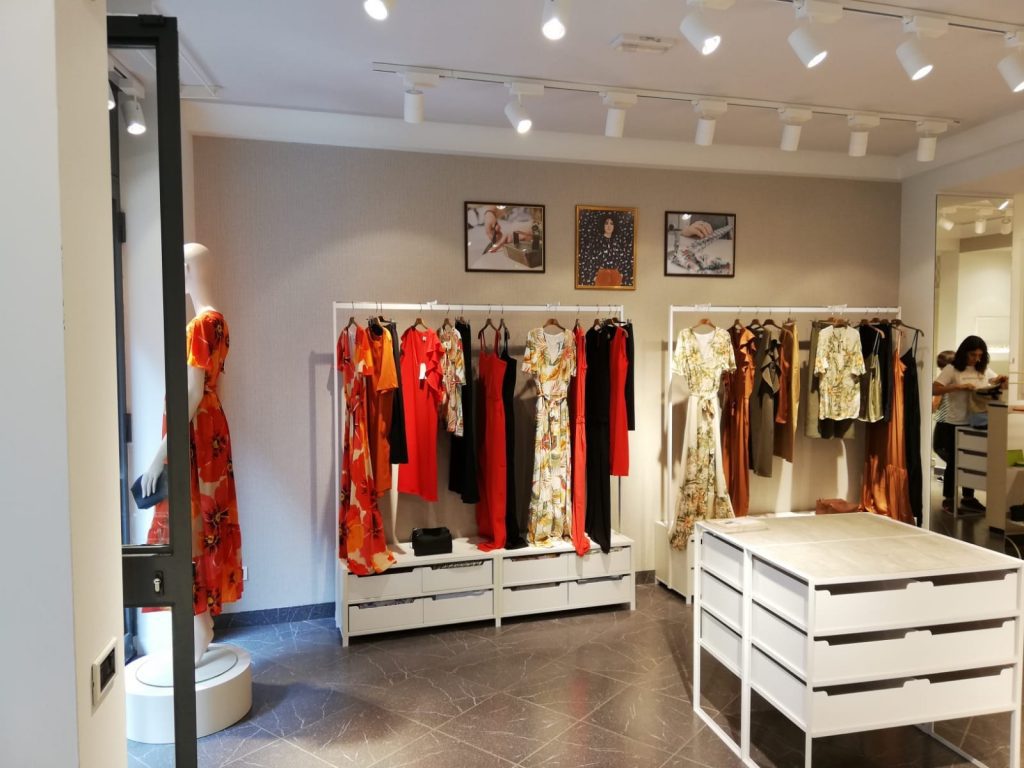

Let’s talk a little about the strictly aesthetic / stylistic aspect: where do the inspirations for the collections come from? What theme did you follow for this last winter?
The creative process of the collections starts from the fabrics: and this is already a characteristic that distinguishes Progetto Quid compared to other brands. There are many variables to consider: basing on upcycling, the sizes are often limited and it is therefore necessary to work with numerous variations to cover the request, fabrics that must allow you to create collections in line with both trends and, of course, with the style of Project Quid. Starting from these consistently developed factors, we create a shared mood that allows the communication office to develop a narrative that enhances both the fabrics of the collections and the people who make the garments. For example, the autumn winter 19/20 collection, which we wanted to call ‘Works of Art’, comes from this large palette of fabrics, a painting, we could say, within which the Quid woman, thanks to the wise work of whom sewed these garments, is portrayed in her romantic and discreet femininity. And it is precisely this new concept of femininity, aware of its own frailties and precisely for this reason, that unites us all as women and that we would also like to represent in future collections.
Even ‘Essenza’, the ‘essential’ line that consists of refined but practical garments designed for easy and unique combinations for ethics and sustainability, carries on this idea of woman. Right now we are about to go out on Zalando, which in recent years has been making sustainable fashion more accessible, with an exclusive collection that will go online on their platform in a few days.
Are you also on Zalando ?! Sincere congratulations! And where do you find the materials you use?
Progetto Quid realizes its creations almost exclusively starting from production surpluses, often with sizes too small for large production or abandoned for questions related to trends or characteristics of the fabric. Thanks to a network of 24 fabric suppliers, Quid is able to extend the life cycle of fabrics and to shorten the carbon footprint of tens of thousands of meters of fabric every year, for a total of 250km in 2019 alone. From 2013 to today Quid has been managing to recover more than 900 km of fabric.
Last question: who will be the next eco-à-porter guest? And why?
I nominate Nicola Dal Forno, marketing manager of the NaturaSì brand. In addition to being our business partner for several years, with NaturaSì and Nicola we specifically share the mission and sensitivity towards people and the environment.
Excellent, thank you very much Anna and really compliments for this project that knows how to see beyond the mere concept of fashion and trends to embrace social inclusion and sustainability.


![Mono[PA6] by Freitag, a prova di economia circolare](https://eco-a-porter.com/wp-content/uploads/2024/05/freitag_monopa6_hero_master_16zu9_fin_01.2_0-218x150.jpg)








